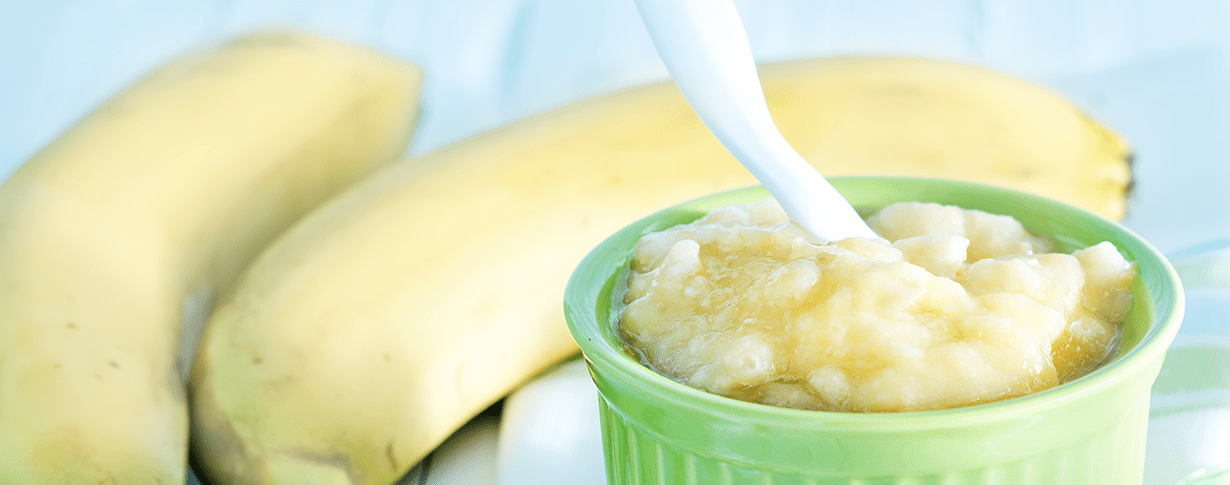Transition to Additional Nutrients in Babies
Additional foods are started after 6 months for babies who are fed only with breast milk and gain sufficient weight.
Conditions to consider when starting additional foods:
- Tools and equipment used must be clean.
- Complementary foods should be given with a spoon, not a bottle.
- The foods to be given should be natural and fresh (canned, frozen foods, ready-made foods with additives should not be used).
- Prepared foods should not be kept at room temperature for a long time.
- New foods to be tried should be given when the baby is hungry and before the familiar foods.
- The baby should not be forced to eat the foods he does not take, he should be tried again after a few days.
- Complementary foods should be started in small amounts and gradually increased to one portion.
- In order to observe possible allergic reactions, more than one additional food should not be started on the same day, new foods should be tried at intervals of about one week.
Depending on the baby’s development and taste, the first complementary foods are usually fruit juices or vegetable purees. Additional nutrients are initially given in the form of soft, crushed, puree, 7-8. It can be given in a thicker consistency after months. The baby, who is accustomed to rough foods in the 9th month, can try to eat by himself from the appropriate foods on the table after 1 year.
Fruit juice and puree: The first fruit to be given to the child is apple, pear or peach, depending on the season. Then bananas, grapes, citrus fruits can be tried. Strawberry should not be given before the age of 1 due to the possibility of allergies. The fruits are washed thoroughly and their skins are peeled, the juices are given for the first 1-2 weeks, and then they are pureed by passing through a glass grater. Initially, 1-2 teaspoons are given, gradually increasing the amount to reach half a banana or a medium-sized fruit portion. Sugar should not be added. It can also be mixed with yogurt. However, we can choose to give it separately in terms of taste.
Yogurt: Homemade yoghurt should be preferred, ready-made yoghurts with additives should not be used, yoghurt without cream should be given. Preparation: After the milk starts to boil, it is boiled for 5 more minutes and cooled down to the temperature that the hand can withstand (40 C). A tablespoon of yoghurt diluted in 1-2 tablespoons of milk is added as yeast to a liter of milk and mixed slowly. It is kept in a warm place for 4 hours or overnight without moving it.
Custard: Although custard is not a food that should be in every baby’s routine meal, it can sometimes be recommended to babies who cannot gain weight and have no appetite. Custard prepared with formula foods or rice/rice-milk spoon foods prepared by baby food companies according to the month of the baby can be used. Since cow’s milk is not a suitable food for the first age, it is preferred to prepare pudding with formula foods. It is cooked by mixing 1 glass of water and about 3 teaspoons of rice flour. It is taken off the fire, after it cools down a little, 6 scales of food is added as powder and mixed. After the 8th month, puddings can be made with wheat and oat flour other than rice flour.
Vegetable soup and puree: Vegetables can also be chosen as the first supplementary food to be given to the baby. It is usually given at lunch, starting with 1-2 teaspoons and gradually increasing the amount.
In the first week, vegetable soup is given; Cook 2 glasses of water, 1 small carrot, 1 small potato, ½ zucchini or 1 teaspoon of semolina in a covered pot. It is passed through a strainer or blender. Meals are supplemented with breast milk until the child receives a portion.
2nd week simple vegetable puree is given; It is prepared like soup, but with less water, 1 teaspoon of olive oil can be added. Vegetables are completely crushed and mashed.
In the 3rd week, it is passed to mixed vegetable puree. The content can be enriched by adding seasonal vegetables and green lentils. A new vegetable is added each week (spinach, cauliflower, leek, purslane, parsley, cabbage, onion, celery, chard, peas, green beans). Green leafy vegetables should be prepared fresh and should not be heated more than once. Beets and eggplants should not be given to the child in the first year. After 1-2 weeks, 1-2 tablespoons of ground lamb minced three times can be added to vegetable dishes.
Breakfast: Breakfast is started for the child who gets used to the above foods. Cheese is prepared with egg yolk cooked in the consistency of apricot, molasses, and half a thin slice of whole wheat bread. 1 teaspoon of butter can be added to the mixture. After the 9th month, instead of giving it in the form of a mixture, it should be preferred to give the foods one by one.
Honey should not be used at the first age. 6-7. Cooked egg yolk is added to the breakfast every month, starting with 1 teaspoon and increasing it to the full within 7-10 days. Egg white is not given in the first year due to the risk of allergy. It is enough to give eggs 2-3 times a week to children who eat meat regularly.
Meat: 6-7. It is added to vegetable dishes in the form of 1-2 tablespoons of minced meat per month. A medium-sized thin steak or skinless organic chicken can then be cut into small pieces and added to vegetable dishes. Unseasoned meatballs can be given.
Pisces: 8-9. After a month, it can be tried by paying attention to the risk of allergy. It should be white meat, boiled, boneless and lean.
Offal other than liver should not be given in the first year. After the 9th month, the liver can be given once in 15 days by replacing it with meat at lunch. The membrane of the liver boiled in water is removed, crushed and given in the form of puree.
Grain soups: After the 8th month, unspiced tarhana soup, highland and lentil soups with yoghurt, dry beans and chickpeas can be given after the 9th month. Legumes should be cooked thoroughly, their shells should be removed and they should be crushed together with the water in which they were boiled and given without grains.
Rice, pasta and stuffing: 8-9. It can be given by mixing with yogurt after months.
Water: Along with complementary foods, babies may need water. The water supplied should be boiled and warmed.
Since tea has no nutritional value and reduces iron absorption, it should not be given to babies.
Salt and sugar should not be given for the first 2 years. In the following years, salt should be used as little as possible and foods containing refined sugar should not be consumed at all.







